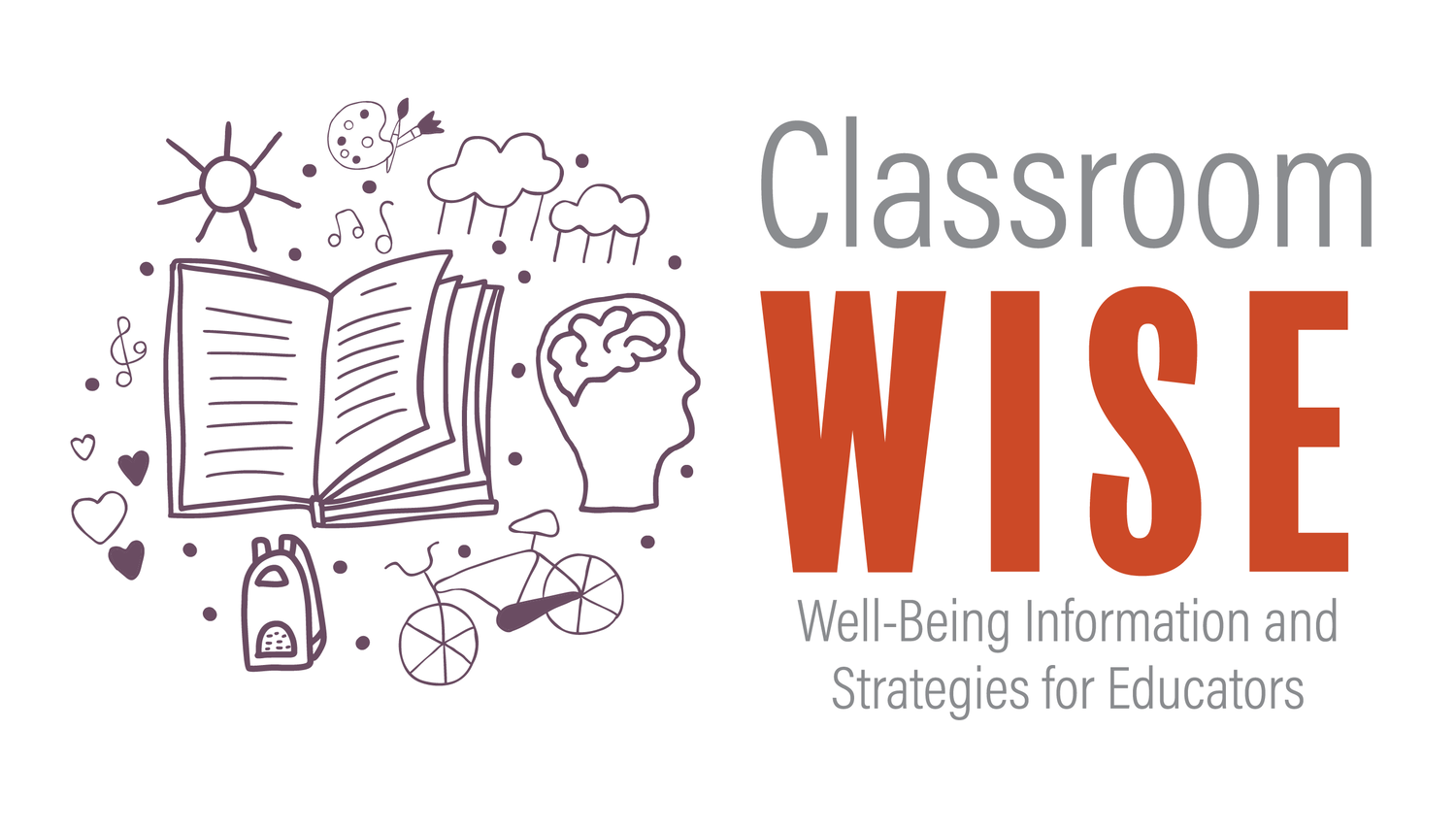
About Classroom WISE
How it all started
The Mental Health Technology Transfer Center (MHTTC) Network partnered with the National Center for School Mental Health (NCSMH) in 2018 to develop the National School Mental Health Best Practices: Implementation Guidance Modules for States, Districts, and Schools focused on the core features of effective school mental health systems. Together, the MHTTC Network and the NCSMH also co-led a National School Mental Health Learning Community in 2019 to advance school mental health policies and practices, with over 200 state and district mental health and education leaders from 38 U.S. states and territories.
In Fall 2019, the MHTTC Network was asked by their funder, the Substance Abuse and Mental Health Services Administration (SAMHSA) to develop a training package to assist educators in supporting the mental health of students in the classroom. The Network again sought the assistance of the NCSMH.
Together, the MHTTC Network and NCSMH teams conducted an environmental scan of educator mental health literacy training and resources already available in the field. In addition, a national needs assessment was conducted to gain a clear understanding of what educators, school mental health staff, and mental health and education leaders need to better support students with mental health concerns.
Utilizing the results of both the environmental scan and needs assessment, we developed a free resource: Supporting Student Mental Health: Resources to Prepare Educators. The resource describes the role of educators in supporting student mental health and provides a list of existing resources and trainings that instruct educators on mental health literacy.
But we didn’t stop there.
Inclusion of educators, administrators, mental health leaders, and students
The MHTTC Network and NCSMH teams then conducted focus groups with educators from across the country who were recruited by MHTTC School Mental Health Leads. Not only did we meet with a diverse group of teachers from different grade levels, ethnic backgrounds and years of experience, but we also held one-on-one interviews with mental health and education leaders from various regions.
From those conversations, it became very clear that teachers understand they are critical in supporting student well-being and want to support the mental health of their students, but they need additional training.
Therefore, we used these findings to guide us in the development of Classroom WISE (Well-Being Information and Strategies for Educators).
Supporting student mental health
Classroom WISE is a 3-part training package that includes a FREE self-paced online course, video library featuring practicing teachers and students, comprehensive resource collection and website for K-12 educators on mental health literacy.
The Classroom WISE online course begins with a brief introduction video on why this work is important and why teachers matter in supporting the well-being of students. The course then proceeds with six modules covering the following:
Promoting the Mental Health and Well-Being of Students
Creating safe and supportive classrooms
Teaching mental health literacy and reducing stigma
Fostering social emotional competencies and well-being
Understanding and Supporting Students Experiencing Adversity and Distress
Understanding and supporting students experiencing adversity
The impact of trauma and adversity on learning behavior
Classroom strategies to support students
To date, over 20,000 learners have enrolled in the Classroom WISE online training! View course objectives here. An overview flyer of Classroom WISE is also available here. Interested in learning more about the evidence-based components of Classroom WISE? Learn more here.
Additional details regarding our process for developing the Classroom WISE online course are available in our peer-reviewed article, Educator-Informed Development of a Mental Health Literacy Course for School Staff: Classroom Well-Being Information and Strategies for Educators (Classroom WISE). The article describes the curriculum development process, including results of focus groups and key informant interviews with educators and school mental health experts. Access this publication here.
In 2022, we also compiled a 2-page summary to highlight the first year of Classroom WISE. This summary highlights a milestone of over 10,000 course completions and includes participant feedback, quotes from educators about how they plan to use Classroom WISE, and a description of our dissemination efforts to increase Classroom WISE implementation in schools. You can access the summary here.
Adoption of Classroom WISE can help educators support student mental health and assist in ameliorating the youth mental health crisis. We hope educators and school personnel find this training package impactful in their work!



